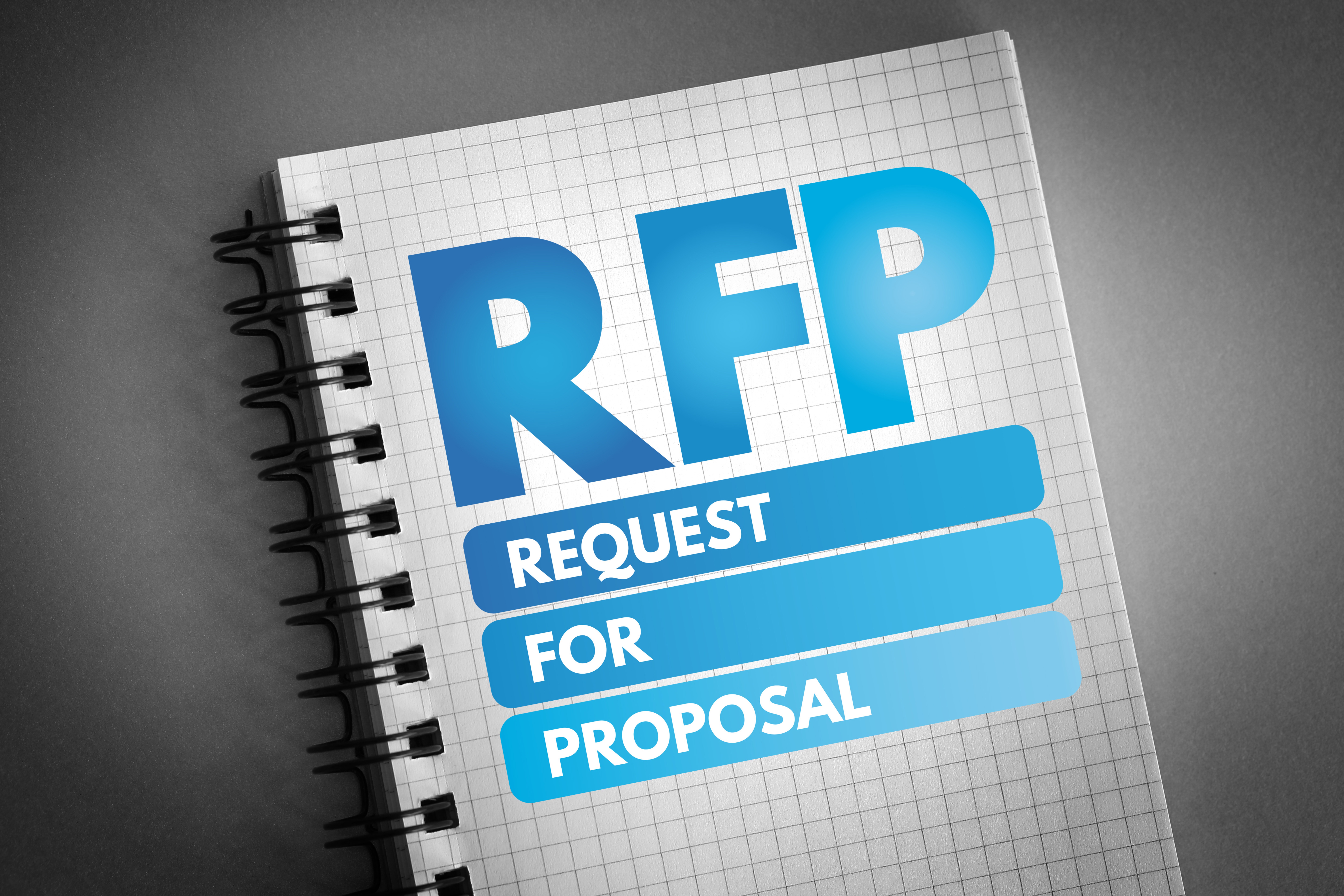By: Kelly Jackson, Executive Director, SLC3
Responding effectively to a Request for Qualifications (RFQ) or Request for Proposal (RFP) in the architecture, engineering, and construction (AEC) industry often comes down to making your submission stand out in a sea of sameness. With a lack of prior relationship with the client or end user, your response becomes the critical bridge to building trust, demonstrating expertise, and showcasing your unique ability to meet their needs. Here’s how to elevate your approach to differentiate your response and improve your chances of winning that project.
- Know Your Client and Their Pain Points
Before crafting your response, invest time in understanding who your client is and, more importantly, what truly matters to them. Every client falls into different “buyer” profiles, often shaped by their key concerns, past project experiences, and stakeholder pressures. Are they driven primarily by budget, timeline, sustainability, or technical innovation? Once you identify what will sway them toward your firm over others, tailor your response to emphasize your strengths in these areas.
If specific details about the client’s priorities aren’t clear in the RFQ/RFP, look to any public statements they’ve made about past projects, explore their organizational goals, or analyze industry trends. For instance, a hospital system may prioritize project timelines and operational efficiency, while a corporate headquarters may focus on sustainability and branding. Use these insights to speak directly to the client’s unspoken needs and project goals, not just the ones written in the RFP.
- Research and Align with Project-Specific Needs
Understanding the needs of the project beyond the standard questions in the RFQ/RFP can be your game-changer, especially if this is a new type of project for your firm. Study the project type and demonstrate an “insider” understanding of its critical elements, even if you haven’t tackled that exact project before. For example:
- Highlight Similar Project Experience: Emphasize past projects that required comparable skills, project management approaches, or innovative solutions, even if the facility types differ.
- Address Key Challenges: Identify the typical challenges associated with the project type and proactively offer insights on how you would handle these, positioning your team as informed and prepared.
- Showcase Relevant Expertise: Relate your team’s knowledge of essential aspects like energy efficiency, safety requirements, or regulatory concerns, showing that you understand the industry standards and nuances that will impact the project.
A detailed response that reflects an awareness of these key factors will resonate with clients as it demonstrates both expertise and thorough preparation.
- Understand the “Why” Behind Every Question
While the RFQ/RFP questions serve as the foundation of your response, it’s crucial to look beyond the literal wording and ask, “What does the client really want to know?” Many RFPs include canned questions that don’t fully capture what’s most important to the client. Your job is to interpret these questions to address the client’s underlying concerns.
For example:
- Technical Competency: If a question asks for details on your team’s technical skills, they may actually be assessing whether your team is capable of managing complexity and adapting quickly to changes.
- Project Approach: When asked about your project approach, the client may be looking for reassurance that you’re both methodical and flexible enough to accommodate unforeseen issues.
- Past Performance: They may be more interested in how you handle client feedback, adapt to project pivots, or deliver on challenging timelines than simply seeing a list of projects you’ve completed.
By interpreting these questions thoughtfully, your responses will reflect a deeper understanding of the client’s needs and position your firm as a more suitable and responsive partner.
- Differentiate Through Customization and Attention to Detail
Even the strongest qualifications can lose impact if they come across as canned or formulaic. Boilerplate language and generic phrases are often a dead giveaway that a response has not been thoughtfully crafted for the client. Start with your foundational content, but invest time in customization:
- Edit for Relevance: Cut extraneous information, focus on points that align directly with the client’s specific needs, and rephrase boilerplate content to reflect the current project context.
- Add a Personal Touch: Demonstrate your firm’s enthusiasm for the project by detailing why this opportunity excites you and what unique value your team can bring.
- Emphasize Quality: Quality assurance, attention to detail, and customization are all critical indicators of trustworthiness and reliability. Sloppy errors, vague responses, or mismatched boilerplate content can erode the client’s confidence in your firm.
- Incorporate Input from Key Team Members
Effective responses require input from those who will directly influence the project’s success—project managers, designers, engineers, contractors, and consultants—not just marketing or business development professionals. This collaborative approach allows you to capture the expertise and insights that the client needs to feel confident in your firm’s capability to deliver. A cross-disciplinary team brings diverse perspectives that enhance the proposal, making it both comprehensive and tailored.
For example:
- Project Managers can speak to timeline management, team organization, deliverables, processes.
- Engineers and Designers can add valuable insights into technical capabilities and design considerations.
- Consultants and Contractors can address specialty challenges or project-specific code, materials, safety related concerns.
This involvement showcases a commitment to the project and assures the client that your team’s expertise extends beyond just landing the contract.
- Build Trust by Demonstrating Alignment with Client Goals
Ultimately, the client’s decision will hinge on who they trust to deliver the project successfully. In every section of your response, find ways to reinforce that your goals align with theirs. Mention how your project management processes will mitigate risks, describe your dedication to meeting timelines without sacrificing quality, or provide examples of similar challenges you’ve overcome to achieve a successful outcome.
- Use Language to Instill Confidence and Trust
When crafting responses, remember that words convey more than just information—they communicate values and reliability. Use clear, compelling language that is easy to understand and builds confidence. Avoid jargon and instead focus on clarity, professionalism, and assurance. Every word you choose should reinforce that your firm is the best partner for this project.
- If Fee is Included, Justify it Through Value and Expertise
When an RFP/RFQ requires a fee proposal, remember that the way you respond to key questions can justify a higher fee. Emphasize value by tying back every answer to the benefits that your expertise and approach bring to the table. Clients are often willing to pay more if they believe your team will provide greater certainty, quality, and peace of mind throughout the project.
Concluding Thoughts
Preparing a winning response to an RFQ/RFP requires strategic thinking, thorough preparation, and attention to detail. By focusing on the client’s needs, personalizing your response, and involving the right team members from the outset, you can differentiate your proposal and create a lasting impression. In the end, it’s about building trust with the client and demonstrating that your firm is their best choice for this project, even if you’re starting without a prior relationship. With the right approach, you can turn a well-crafted response into a winning opportunity.




